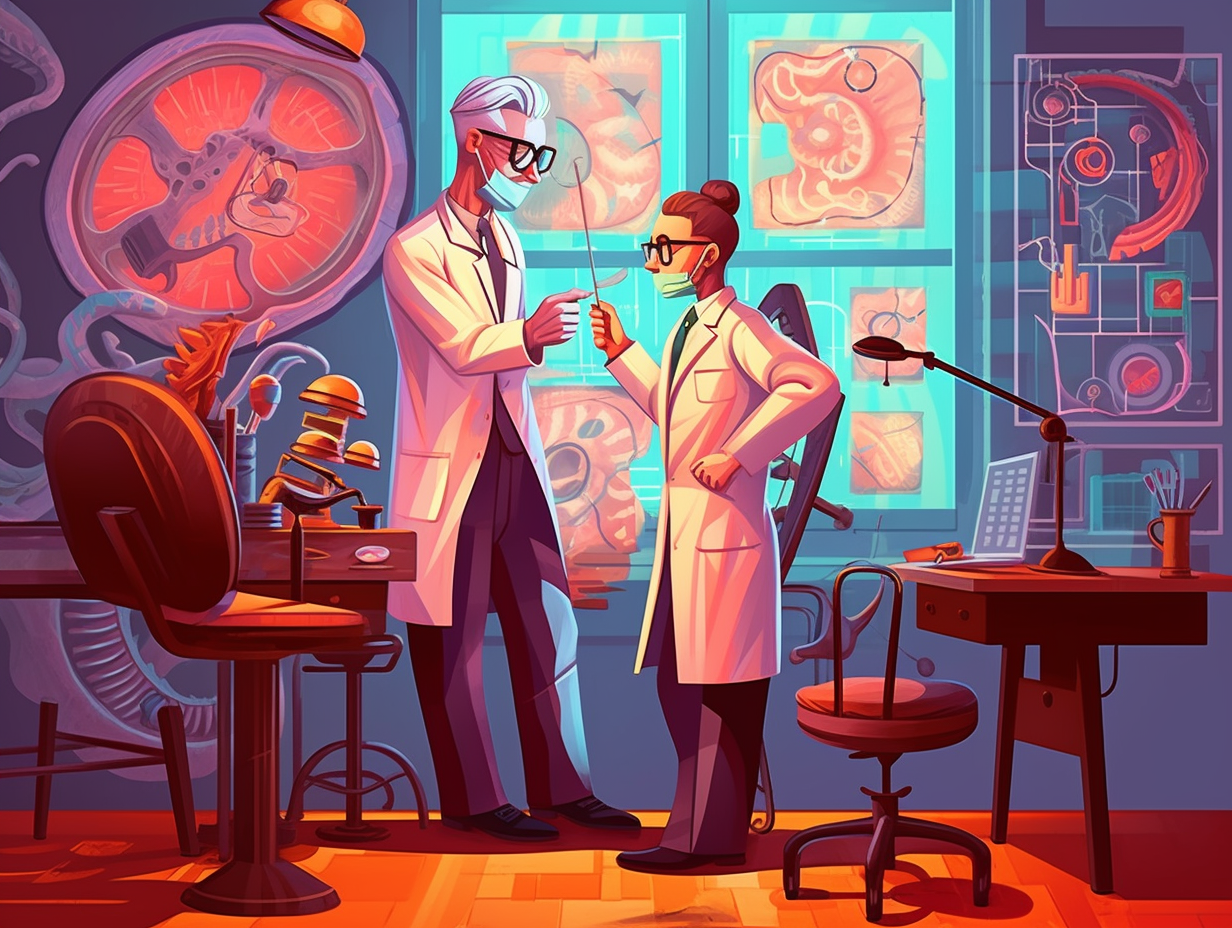Discover the Thrilling Side of Science: Top 12 Fun Facts About Vaccines You Never Knew!

1. Smallpox Scabs: The OG Vaccine
Before cowpox stepped into the spotlight for its game-changing role in vaccination history, smallpox scabs were the unsung heroes, cast aside like yesterday's news: Chinese scholar Wan Quan bust onto the scene in the 16th century with the world's first vaccine, using smallpox scabs for variolation—long before Edward Jenner wooed us all with his cowpox innovation in 1796.
Source => who.int
2. Tobacco Leaves: The Unlikely Vaccine Heroes
When life gives you tobacco leaves, make vaccines: Botanist Martinus Beijerinck discovered the tobacco mosaic virus in the late 1800s, effectively kickstarting the study of viruses. His pioneering experiments with this "contagious, living fluid" eventually paved the way for life-saving vaccinations and the eradication of smallpox.
Source => smithsonianmag.com

Did you know that moldy cheese, crusty bread, and a contaminated petri dish in 1928 led to the discovery of penicillin, the superhero of antibiotics? Uncover the fascinating origin story that saved millions of lives! 🧪🦠🌟
=> Fun Facts about Penicillin
3. Jonas Salk: Polio's Unpatented Savior
In a world where superheroes don't wear capes, Jonas Salk swooped in to save the day, armed with his trusty 'No Patent' policy and a heart of gold: Salk, the creator of the polio vaccine, and the National Foundation for Infantile Paralysis generously decided not to patent the vaccine, providing the formulation and production processes to various pharmaceutical companies for free, all for the greater good of mankind and avoiding a potential pandemic of low-quality knockoffs.
Source => slate.com
4. Vaccines: Magical Potions with a Side of Science
From ancient potions and magical concoctions to a spoonful of sugar: modern vaccines have evolved, using various forms to fight disease! The serious reveal: There are several types of vaccines like live-attenuated, killed whole-cell, and subunit vaccines, each providing varying levels of safety and effectiveness against enteric pathogens such as rotavirus, E. coli, Vibrio cholerae, and Salmonella Typhi, and though some can be taken orally, not one comes in jelly form.
Source => ncbi.nlm.nih.gov

5. James Phipps: Smallpox's Man of Steel
Move over, Superman! James Phipps was the true "Man of Steel" when it came to fighting smallpox: As the first recipient of Edward Jenner's cowpox vaccine, Phipps withstood a mind-boggling twenty-plus smallpox inoculations without ever succumbing to the dreaded disease, proving the vaccine's effectiveness in a heroic fashion.
Source => en.wikipedia.org
6. Lady Montagu: Smallpox Warrior from the East
Once upon a time in a land far, far away – no, not the Shire – a fearless female warrior armed with an ingenious idea took on the monstrous smallpox!: Our heroine, Lady Mary Wortley Montagu, brought the practice of smallpox inoculation from Turkey to Britain in the early 18th century. She successfully vaccinated both her children, saving them from the deadly epidemic and laying the foundation for Dr. Edward Jenner's later creation of the first smallpox vaccine.
Source => theconversation.com
7. Malaria Vaccine: Saving Lives Beyond Superman's Reach
Step aside, Superman: there's a new lifesaver in town, with powers extending beyond a single bound! Meet the RTS,S/AS01 vaccine: the first-ever malaria vaccine approved by the World Health Organization, it combats a human parasitic disease, specifically targeting P. falciparum malaria in children in high-risk areas. Since 2001, this incredible innovation has been reducing the frequency of malaria cases, saving precious young lives, and giving even the Man of Steel a run for his money!
Source => malariavaccine.org
8. Adult Vaccines: The Real Perks of Growing Up
While adulting is mostly associated with paying taxes and pretending to like kale, there's more to it than meets the eye – especially when considering keeping our health in tip-top shape: Adults of all ages, from 19 to 64 and beyond, need routine vaccines such as the flu, Tdap, and COVID-19 shots, not to mention potential bonus rounds like the shingles, MMR, HPV, and Hepatitis B vaccines, depending on their lifestyle, job, and travel history. Who said growing up isn't a bundle of laughs?
Source => cdc.gov
9. Vaccines and Clean Water: The Unsung Heroes of Global Health
If vaccines had a buddy cop movie, they'd be the unsung heroes always saving the day but staying out of the limelight, unlike their flashy partner Clean Water: Vaccines have played a massive role in global health, eradicating diseases like smallpox and rinderpest, significantly reducing childhood mortality rates, and keeping the bad guys - such as polio and measles - under control.
Source => ncbi.nlm.nih.gov

10. Egg-free Flu Shots: Scrambling the Vaccine World
Who needs chicken eggs when you've got science on your side, right? Quickest scramble ever: In the United States, there are flu vaccines completely egg-free, made using a cell culture-based production process that gives the cold shoulder to chicken eggs, perfect for egg-allergic individuals. This innovation serves up the potential for a faster launch of vaccine manufacturing and minimizes the chance of contamination from egg-related allergens.
Source => cdc.gov
11. Dr. Goddard: Secret Rocket Launches Before Moonwalking
Before rockets made moonwalking cool and Elon Musk's dreams possible: Dr. Robert H. Goddard, a physics professor, secretly launched the first successful liquid-fueled rocket on March 16, 1926, in Auburn, Massachusetts. A cautious pioneer, Goddard guarded his innovations from potential copycats until a 1920 press release catapulted him to fame. Ironically, his paranoia couldn't overshadow his contributions to today's world of rocketry and space exploration.
Source => airandspace.si.edu
12. Thimerosal: The Harmless, Autisim-Unrelated Preservative
Talk about a silver lining: it turns out that thimerosal, the much-maligned preservative in vaccines, is not only a-okay, but also wouldn't make you or your kiddos go "thim"-panicked! Serious reveal: Thimerosal has proven to be safe in vaccines, and there's no link to autism, with even autism rates increasing after its removal from most US childhood vaccines – and hey, the measles, mumps, and rubella vaccine never had it in the first place!
Source => cdc.gov
Related Fun Facts




















